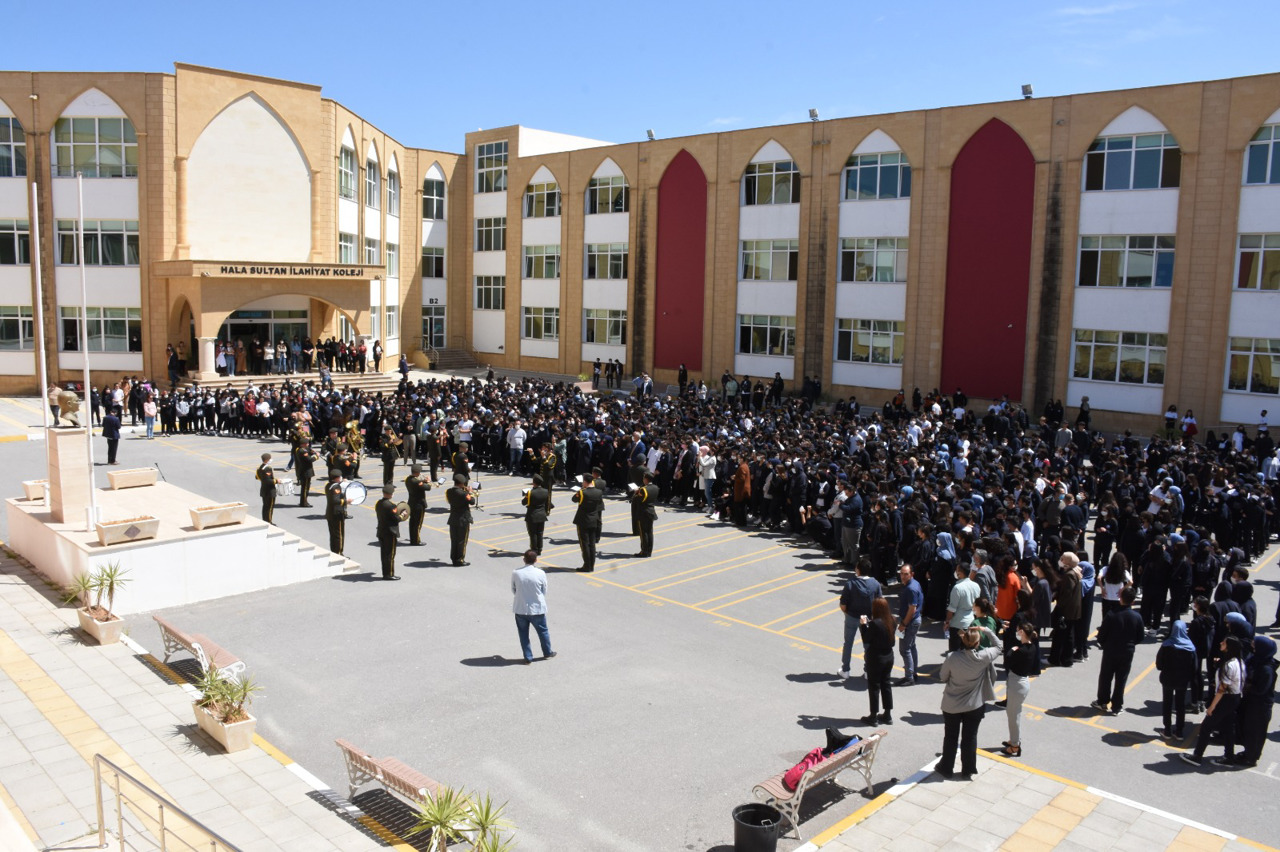A group of 27 cultural associations, mainly comprising Turkish nationals living in the north, on Thursday defended the Cyprus Turkish educators’ union (Kibtes)’ demand that more religion classes be taught in the north’s schools.
The associations claimed that the issue had been “distorted” in the media, and that the aim of Kibtes’ demands was not to “complain about” the north’s ‘education ministry’, but in fact to “urgently resolve the issues which they had expected would be resolved for years”.
“Positive results had not been obtained from applications made to the education ministry and to the TRNC’s state administrators at various times for years by civil society organisations and initiatives defending national and spiritual values,” they said.
They added that Kibtes’ demands had been “distorted by slander and demagogical expressions” and attacks written in “marginal publications”, when the union’s only aim was to “defend national and spiritual values”.
Among the statement’s signatories were the “Cyprus theology members and graduates association”, the “TRNC Black Sea culture association”, the “TRNC religious officers’ union”, the “TRNC Arab culture and solidarity association”, as well as cultural associations centred on specific towns and cities in Turkey.
These associations are named after and made up of people from places including Elazig, Kahramanmaras, Kars, Sanliurfa, Adiyaman, and Van.
Kibtes’ chairman Himmet Turgut, who works at the controversial Hala Sultan theology college in Mia Milia, had last week sent a six-page report to Turkish Vice President Cevdet Yilmaz, demanding more religion in the north’s schools.
Among other things, the report asked for children as young as four years old to be given “religious information courses”, provided by either the north’s religious affairs directorate or by the Turkish embassy in Nicosia’s religious affairs advisory board.
The report also decried the lack of “religious culture and moral knowledge” courses being taught at public schools in the north.
It then turned its attention to the Republic’s education system, saying religious courses “have a paramount place” in Greek Cypriot schools, and that “the government makes it mandatory to attend religious services before major Greek Orthodox religious holidays in public spaces and to receive a Greek Orthodox religious education”.
Teachers’ trade union Ktoeos leader Selma Eylem was quick to react, describing Kibtes as an “embassy-backed union” and saying its report is part of “efforts to put ideological pressure on teachers”.
She added that it is the “mufti”, a colloquial name for the religious affairs director, who “supervises teachers”.
Opposition political party the CTP also weighed in on the matter, saying, “we reject and openly condemn the statement and the report, which contain serious risks of dividing society and targeting teachers”.
It said this report was proof that Kibtes “is not concerned about a quality, modern education”.
This week, Akel also weighed in on the matter, calling Kibtes’ report “an extension of Turkey’s interference in the Turkish Cypriot education system to make it consistent with the Islamic agenda imposed in Turkey”.
“Akel supports the Turkish Cypriot community’s right to an independent education system,” it said, saying that this is a “goal supported by the majority of Turkish Cypriot teachers’ unions and progressive political parties”.
To this end, it said its member of the European parliament Giorgos Georgiou had submitted a question to the European Commission, asking whether it is aware of the issue and “what measures it intends to take to support the Turkish Cypriots’ right to an independent education system”.






Click here to change your cookie preferences